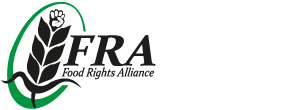The National Planning Authority (NPA) in collaboration with World Food Programme (WFP) and other Stakeholders carried out an SDG2 Strategic Review. This review focused on how SDG2 targets on “ending hunger, food security, improved nutrition and promotion of sustainable agriculture will be localized within the Ugandan context. Led by the Economic Policy Research Centre (EPRC), this Review examines Uganda’s preparedness to achieve the goal and its five (5) targets. It offers an in-depth analysis of the Food and Nutrition Security (FNS) situation in Uganda and examines the extent to which existing policies, legal and institutional frameworks as well as programmes have addressed the food and nutrition issues in the country. This Review further identifies the gaps and recommends the strategic interventions that the country needs to implement to facilitate the achievement of SDG2 and its targets in an inclusive manner. Although this review focuses on SDG2, it takes cognizance of the inter-linkages between the 17 goals.
With the conclusion of this, a validation meeting was held on 12th May, 2017 as part of the efforts to ensure the validity of the review report findings and recommendation. This meeting brought on board representatives from civil society, private sector, development partners, and agribusiness among other players.
Findings from this review indicate a number of alarming areas of concern for the country. To start with, the review highlighted the depth of hunger in the country as still high. It further showed that the “diets of most Ugandans remain inadequate both in terms of quantity (adequacy and availability) and quality (diversity and safety)”. While the SDGs are hinged on the premise that no one is left behind, the findings reveal uneven progress in improving the food security situation across the country.
Progress based on Uganda’s geographical regions, shows that eastern Uganda is regressing—registering an increase in the prevalence of food insecurity from 33 to 46 percent during the 2009/10 and 2015/16 reporting periods, as compared to their counterparts in the western region. Among other finding this review took stock of the reduction in the levels of under nutrition in the country, with indicators like stunting reducing from 33 percent in 2009/10 to 27 percent by 2015/16. The review also noted the increasing trend of obesity among women in the country over the past 20 years that is from 8 percent in 1995 to 19 percent in 2011. This Review generated a number of other findings like; low access to school meals, low agricultural productivity, limited use of sustainable land management practices, increasing natural shocks which aggravate food insecurity, unrestricted trade in food products and erosion of Genetic Diversity among others.
This Review emphasized the urgent need to renew the political commitment to FNS through translating the various plans and policies into concrete actions—supported with the required budgets. Specifically, “the government must earmark funding for different proposed FNS interventions”. The Review furthermore noted the importance of mainstreaming development partner support for FNS within the public budget and to strengthen the multi-sectoral approach to the delivery of interventions by engaging the private sector and NGOs.
Clearly this Review was timely as the country prepares for the High Level Political Forum on SGDs in New York, 2017, which will review a number of goals, SDG2 being one of them. It is also a stepping stone for government, civil society, development partners, private sector and citizens to reflect on areas that need our input for a sustainable and equal change.
Regina Kayoyo
Food Rights Alliance


